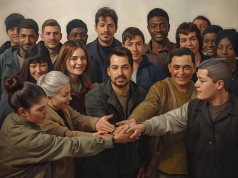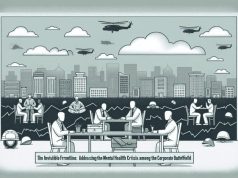In the landscape of employment, transitioning from the structured cadence of military service to the multifaceted arena of civilian work can be a daunting expedition for our nation’s veterans. The public sector, with its inherent mission-oriented work and a longstanding tradition of valorizing service, seems a natural harbor for these seasoned individuals. Yet, significant barriers stand sentinel, often impeding equitable access to these opportunities. This prompts the question: How can public sector organizations adapt their hiring practices to become more veteran-friendly and tap into the extensive reservoir of skills that veterans possess?
Firstly, let’s consider the potential hurdles that veterans confront when entering the public sector workforce. The translation of military experience to civilian job requirements is not just a matter of semantics; it’s a chasm that requires bridging. Military roles often entail leadership, strategic planning, and project management, yet these skills may get lost in translation without the proper civilian terminologies and frameworks that hiring managers recognize.
Furthermore, the complex hiring processes of the public sector, which emphasize specific educational backgrounds and work experiences, may not be structured to recognize the indirect equivalences of military training and expertise. This creates an inadvertent bias against veterans whose unique skill sets may not align with traditional job descriptions, despite the immense value they can add to a role.
Hiring managers may also harbor unconscious biases, perceiving veterans as overly rigid or unsuitable for roles that require adaptability and creativity, overlooking the diverse experiences and innovative problem-solving skills honed through years of service under challenging conditions.
In addressing these barriers, public sector employment statistics for veterans illuminate a perplexing dichotomy. Veterans are often concentrated in certain roles within security, defense, and logistics, where the overlap with military duties is transparent. However, their presence in roles that demand softer skills—such as communication, policy development, or community services—is less pronounced. Is this a reflection of veterans’ career preferences, a result of limited awareness about available opportunities, or a byproduct of the hiring ecosystem’s structure?
To catalyze change, policies that explicitly focus on recognizing the equivalencies between military training and civilian job requirements could be a starting point. Resume-building workshops, mentorship programs, and targeted public sector internships could bridge the cognitive divide between military service and public employment.
Imagine the potential societal boon if the public sector harnesses the unique perspectives and skill sets that veterans bring. Veterans are accustomed to working within diverse teams, managing resources efficiently, and performing under stress—qualities that could enhance workplace culture, drive innovation, and amplify the efficacy of public services.
The impact of integrating more veterans into non-traditional roles could be revolutionary. Imagine the fresh approaches to city planning by those trained in logistics, the heightened empathy in social services by those who’ve served in humanitarian missions, and the fortified integrity in administrative positions by those who’ve lived by codes of honor.
As we explore solutions, we must also reflect on the role of societal attitudes and policy in facilitating or thwarting veterans’ transition into the public sector. It is not merely a matter of opening doors but also ensuring that pathways are illuminated and accessible. We must collectively strive to dismantle the barriers and build a workforce that is not only veteran-inclusive but one that fully leverages the rich mosaic of experiences our veterans bring to bear.
We invite feedback and dialogue on what changes are necessary to cultivate a public sector that not merely accommodates but celebrates and actively integrates the veteran workforce. It is not a question of charity; it is a strategic imperative for a public sector that reflects the best of our society. Let the conversation begin.
























